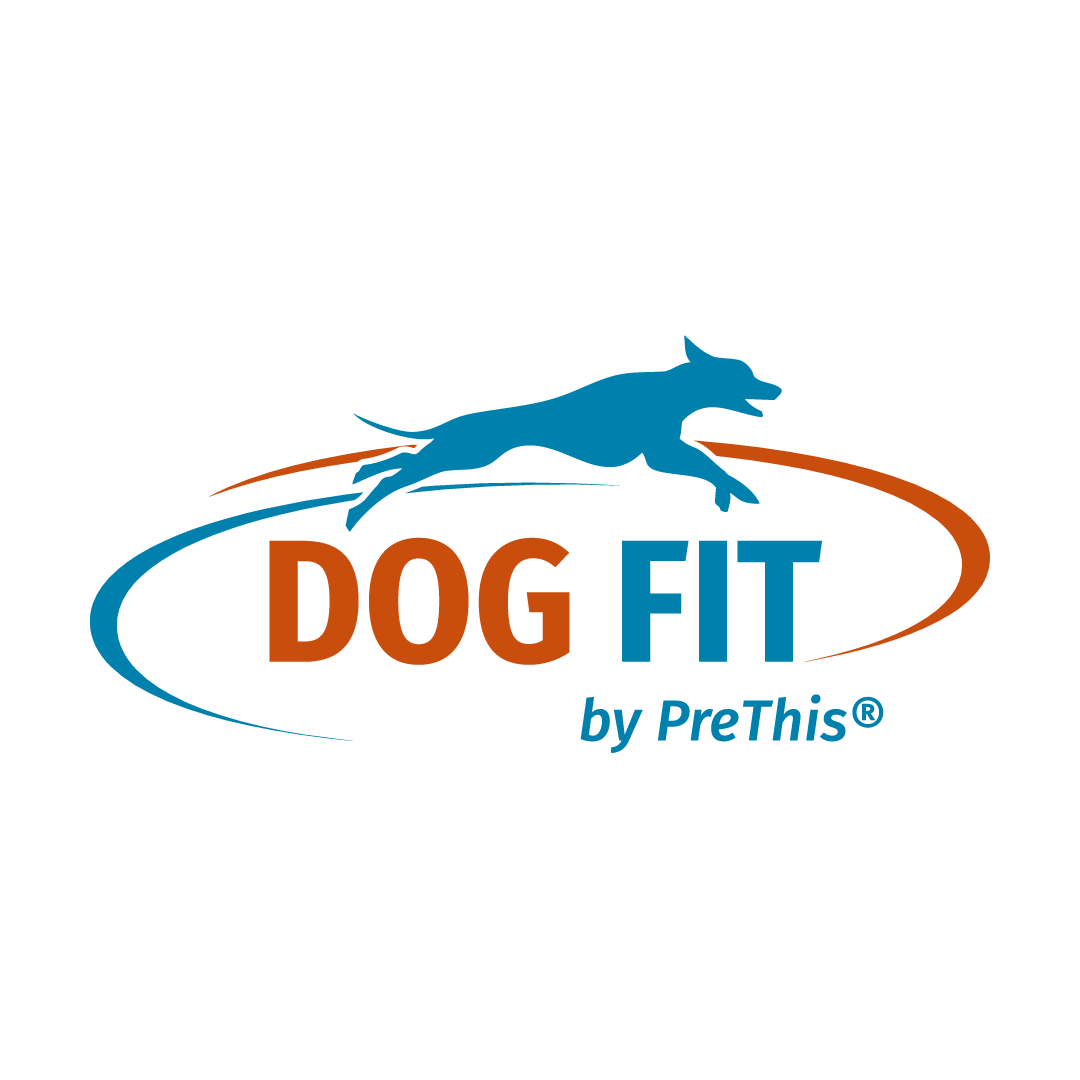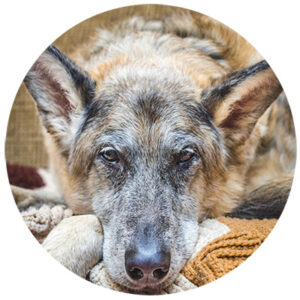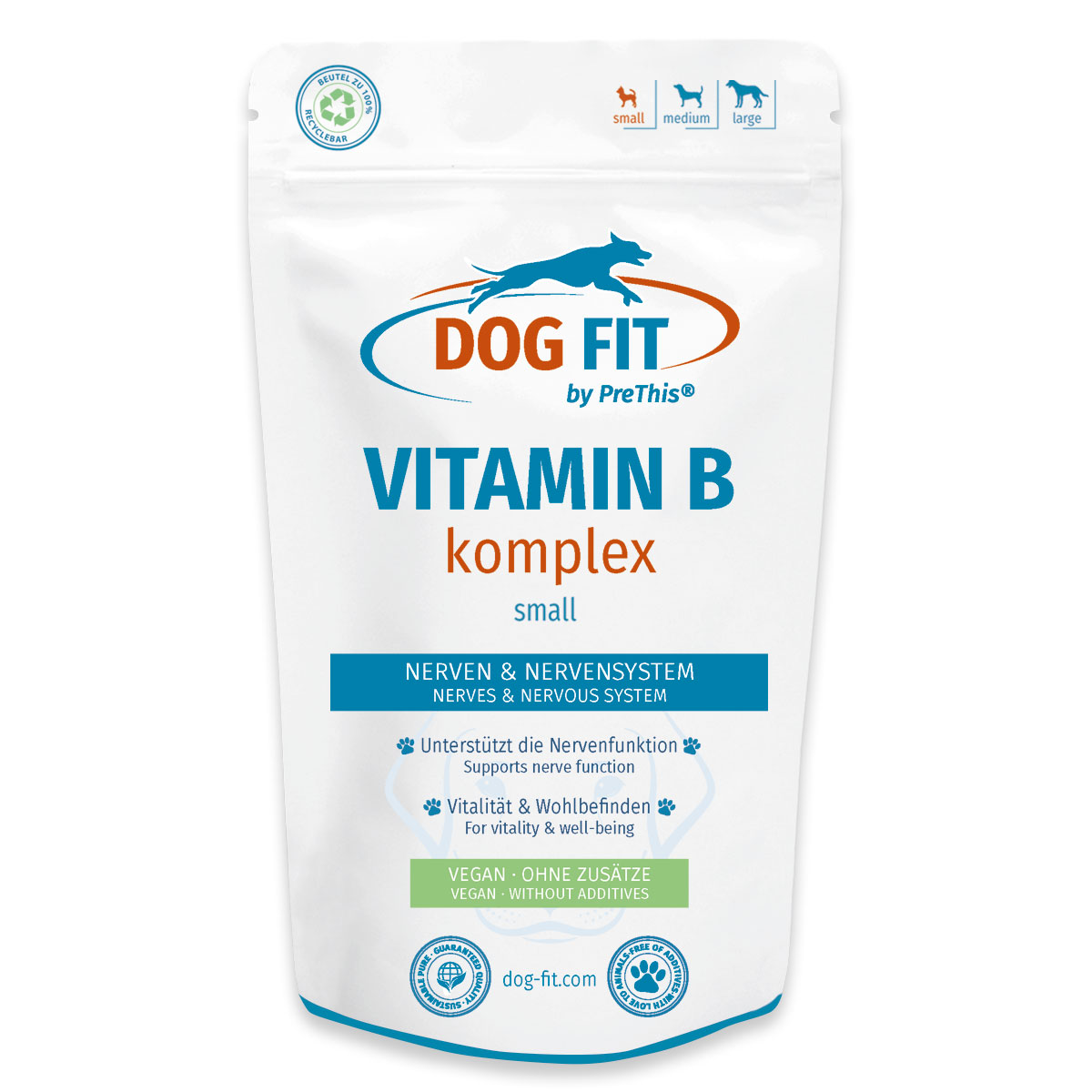Introduction
Dementia is a disease that can affect not only us humans, but also our dogs. It’s a gradual process: memory, orientation, learning ability – all of these can decline over time, and at some point, the somewhat distracted grandpa on four paws turns into a dog that can no longer even find its way around the garden. So-called cognitive dysfunction not only changes everyday life, but also the relationship with your four-legged friend.
The treatise on the “disease of forgetfulness.” This is what Dr. Alois Alzheimer, a neuropathologist and psychiatrist, called this previously little-researched disorder in 1906. It took almost a century for this topic to find its place in veterinary medicine. Today we know: dogs can also experience a loss of mental abilities – with symptoms very similar to those in humans. These changes are often dismissed as normal signs of aging, which explains why dementia in dogs is often only diagnosed late.
Cognitive dysfunction – more than just age-related forgetfulness
The so-called cognitive dysfunction syndrome (CDS), sometimes referred to as “canine Alzheimer’s,” usually only becomes apparent in old age. The structure of the dog’s brain changes: nerve cells die, connections fade – and everyday life becomes increasingly challenging for your dog. Interestingly, in larger dog breeds, the first symptoms often appear around the age of six, while in smaller dogs they usually appear a little later.
Whether and how quickly the disease progresses varies from dog to dog. Some four-legged friends live with mild symptoms for many years, while others deteriorate more quickly. On average, about one in four older dogs is affected, but there are many things you can do early on and as the disease progresses to make their life easier.
10 typical signs of early dementia
The signs often appear gradually and are sometimes so subtle that they are easy to overlook. Common symptoms include:
- Disorientation: The dog gets lost more often, even in familiar surroundings, or appears disoriented.
- Forgetfulness: The dog shows increasing forgetfulness, forgets familiar places or routines.
- Disoriented eating behavior: The dog loses interest in food or forgets to eat.
- Reduced response to familiar stimuli: The dog reacts less to familiar sounds or voices.
- Less interaction: The dog withdraws, shows less interest in playing or interacting with other dogs.
- Behavioral changes: Aggressive or fearful behavior may develop.
- Reduced ability to learn: The dog has difficulty learning new commands or Tricks.
- Changed sleep patterns: The dog is restless at night and shows increased activity.
- Sleep changes: The dog sleeps less at night and is more tired during the day.
- Uncontrolled urination or defecation: The dog can no longer control its excretion.
The causes of dementia in dogs
The causes are varied. In addition to the normal aging process, genetic factors, certain pre-existing conditions, brain injuries, medications, or environmental toxins are considered possible triggers. Some dog breeds, such as Golden Retrievers or Beagles, appear to be somewhat more susceptible. A cause cannot always be found—in this case, it is referred to as idiopathic dementia. However, it is thought that a number of factors may contribute, including:
- Age: Dementia is an age-related condition that is more common in older dogs.
- Genetics: Some breeds are more prone to dementia than others, for example, Golden Retrievers, Labrador Retrievers, and Beagles.
- Injuries or Illnesses: Injuries or diseases of the brain can cause dementia.
- Medications: Some medications can have dementia as a side effect.
- Toxins: Toxins, such as B. Lead or arsenic.
What can I do for my demented dog?
While there is no cure, you can do a lot to best support your dog:
- Structured daily routines: Fixed rituals and clear routines help them find their way and avoid insecurities.
- Mental and physical activity: Small search games, walks, nose work, and new impressions keep the brain fit.
- Loving communication and patience: Positive reinforcement, a calm word, and petting provide security and build trust.
- Adapted environment: A safe place to retreat, easily accessible bowls, non-slip surfaces, and soft lighting are worth their weight in gold.
- Regular veterinary care: Check-ups help detect changes early and respond to individual needs.
Micronutrients and nutrition – what is important?
A balanced, Age-appropriate nutrition forms the basis for well-being and joy of life. Scientific findings indicate that certain micronutrients, such as B vitamins, can contribute to the normal function of nerves and the brain. They support many metabolic processes and energy metabolism – especially in old age.
Another interesting aspect: A balanced homocysteine level can have a beneficial effect. A level that is too high is considered a risk factor, so it is advisable to check nutrient supply with your veterinarian.
An important point that is often underestimated
Diet lays the foundation for a long and healthy dog life. From the very beginning, you should ensure that your dog’s diet is fresh, high-quality, and tailored to his needs. Simply opening the food bag and pouring dry kibble into the bowl won’t meet the needs of most dogs. Scientific studies, such as the A study by Lippert and Sapy impressively shows: Dogs fed primarily dry food or other processed foods have, on average, a life expectancy up to 32 months shorter than their counterparts fed fresh, balanced food. Your dog will thank you if you offer them natural, high-quality food every day.
In conclusion: Dogs accompany us with their inimitable loyalty, their zest for life, and their ability to find the beauty in everyday life, even in difficult times. Enjoy every day together, create small rituals, and give your dog a sense of security—especially in old age. This makes the bond between humans and dogs particularly strong.
Product information: DOG FIT by PreThis® VITAMIN B 🛒 – Premium supplementary food for dogs. The recipe is tailored to your needs, vegan, and free from genetic engineering and artificial additives. You can find more information here:

The content of the articles is for general information purposes only and does not replace diagnosis or treatment by a veterinarian. Reviews or testimonials are individual reports from verified customers. This information does not constitute medical advice and should not be understood as such.
Our daily inspiration comes from the special moments with our dogs. Here we share this enthusiasm and invite you to become part of the DOG FIT community on our social media channels.





Leave a Reply